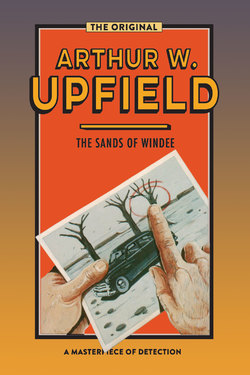Читать книгу The Sands of Windee - Arthur W. Upfield - Страница 16
На сайте Литреса книга снята с продажи.
Chapter Twelve
ОглавлениеThe House of Bliss
The origin of tin-kettling is obscure, and to-day it is practised in Australia with more or less ritual—in the farming areas no ritual whatever. In Central Australia, however, where the huge holdings of land are held by city monopolists and oversea shareholders, women and marriages are rare. Tin-kettling a newly-wed pair is an event accompanied by a ceremonial of almost religious inflexibility, whilst with our modern motor transport a distance of eighty miles is but an evening’s jaunt. The beating of tinware is merely an adjunct to a house-warming party and the whole affair is often arranged by the bridal couple and the visiting friends beforehand.
On this occasion there followed Stanton and his daughter nearly thirty people. Father and daughter led the procession through the gate in the wicket fence and halted before the main veranda steps, whereupon Jeff called in a loud voice:
“Awake, ye sleepers in the House of Bliss! We are an-hungered and athirst.”
No welcome was there. The house remained in complete darkness. The seconds slowly passed before the leading couple started to circle the house. Whereupon terrific din broke out from wildly-beaten tins—din that continued until the procession again halted at the veranda steps, when the echo of it was continued by numerous chained dogs and a great flock of awakened galahs roosting in the all-pervasive scrub.
“Show us a glimpse of the House of Bliss!” Stanton shouted.
Still no light appeared. Still the sleepers slept. Again Stanton led his procession of ear-splitting beaters round the house. The dogs yelped and howled, and the birds rose from their perches and fled. For the third time they came to the veranda steps, and for the third time Stanton called:
“Open, ye dwellers in the House of Bliss!”
And then a light sprang up in one of the rooms. A window was thrown open, and a voice raised in pretended anger came to them:
“Enough! Who are you who should disturb the slumbers of those within the House of Bliss?”
“We are friends of the bride and friends of the groom. We are in need of refreshment and desire to rest,” was Stanton’s reply.
“Gladly then will you all be admitted.”
The window was closed. Light after light sprang up in room after room, until there was not a dark room in the house. Suddenly the main door was thrown open. A brilliant petrol lamp was brought out and suspended from the veranda roof, and then the veranda fly-netted door was flung back and a man and a woman, both dressed in white, stood looking down on them.
“Enter, friends of the bride!” entreated the woman.
“And of the groom!” cried the man.
“Enter our House of Bliss!” they invited together, and stood back whilst Stanton and Marion mounted the three steps. On the veranda a young man not yet thirty, slim, wiry, fair and good-looking, the born horseman indicated in his stance, and a young woman, small and dark and vivaciously pretty, waited to receive them. The men shook the hands of both with genuine good-fellowship, and the two ladies kissed and petted the bride with real affection.
Bony was the last to be greeted. Dressed in a well-fitting grey suit and wearing spotless linen, his European cast of face and blue eyes expressed understanding sympathy when he bowed to host and hostess with infinite grace.
“This is Bony,” Stanton said by way of introduction. “Meet Harry and Edith Foster.”
Bony found himself being regarded by the keen appraising eyes of Foster, and then the overseer’s hand was thrust towards him, and Foster said:
“I’m glad to meet you, Bony. I’ve heard how you trained the grey gelding, and I’m always glad to make a friend of a good horseman.”
“And will you train a horse for me like you trained the grey gelding, Bony?” inquired the bride.
“It would please me much, if a horse can be found as teachable as Grey Cloud,” was Bony’s smiling consent. The girl’s big brown eyes were unsmiling, although her mouth smiled. Her looks and bright chatter doubtless would make a strong appeal to many men. Bony, however, was unaffected. There was absent from Edith Foster that inward light that made of Marion Stanton a lovely woman.
She and her husband led their guests into the house. The petrol-tins were stacked on the veranda. The ladies disappeared with the bride, and the groom conducted the gentlemen to the long dining-room, at whose farther end several adjoining tables supported great dishes of sandwiches, buttered scones, cakes and rank on rank of bottles and glasses.
“Say, Harry, wot’s it like to be tied up?” asked Ted, the tall, bearded, sun-blackened stockman.
“Great, man! You should try it.”
